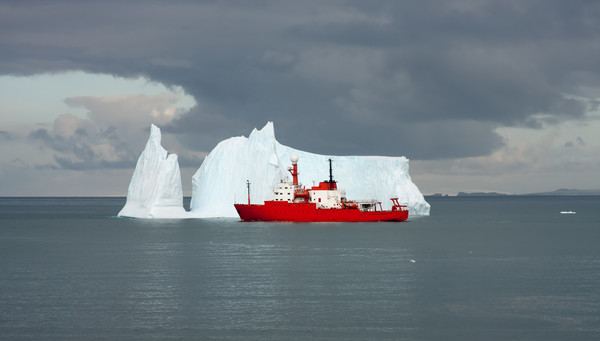The International Maritime Organization’s (IMO) Marine Environment Protection Committee held its 76th Session (MEPC 76) remotely from 10-17 June 2021 under the Chairmanship of Mr Hideako Saito from Japan and his Vice-Chair, Mr Harry Conway from Liberia. IUMI was in attendance with Lars Lange and Hendrike Kühl. A substantial part of this virtual meeting was dedicated to the crucial work on the reduction of greenhouse gas (GHG) emissions from shipping. The debate was at times challenging and consensus not always easy to achieve.
Reduction of GHG emissions from shipping measures adopted
The MEPC adopted amendments to the International Convention for the Prevention of Pollution from Ships (MARPOL) Annex VI that will require ships to reduce their greenhouse gas emissions. The amendments include technical and operational approaches to improve the energy efficiency of ships. This is in line with the targets established in the 2018 Initial IMO Strategy for ‘Reducing GHG Emissions from Ships’. The changes also provide important building blocks for future GHG reduction measures.
The new measures will require all ships to calculate their Energy Efficiency Existing Ship Index (EEXI) following technical means to improve their energy efficiency and to establish their annual operational Carbon Intensity Indicator (CII) and CII rating. Carbon intensity links the GHG emissions to the transport work of ships.
Annual operational Carbon Intensity Indicator (CII) and CII rating
The amendments apply to ships of 5,000 gross tonnage and above (the ships already subject to the requirement for data collection system for fuel oil consumption of ships). These ships are required to have determined their required annual operational CII. Ships will get a rating of their energy efficiency (A, B, C, D, E; A is the best), which will be incorporated in their mandatory Statement of Compliance to be issued by the Administration. Administrations, port authorities and other stakeholders as appropriate are also encouraged to provide incentives to ships rated as A or B. A ship rated D for three consecutive years, or E, is required to submit a corrective action plan, to show how the required index (C or above) would be achieved.
Entry into force
The amendments to MARPOL Annex VI (adopted in a consolidated revised Annex VI) are expected to enter into force on 1 November 2022, with the requirements for EEXI and CII certification coming into effect from 1 January 2023. This means that the first annual reporting on carbon intensity will be completed in 2023, with the first rating given in 2024.
Review by 1 January 2026
A review clause requires the IMO to review the effectiveness of the implementation of the CII and EEXI requirements by 1 January 2026 at the latest and if necessary, develop and adopt further amendments.
The Committee also agreed to keep under review the impacts on States of the aforesaid amendments to MARPOL Annex VI, paying particular attention to the needs of developing countries so that any necessary adjustments can be made.
Proposal for an International Maritime Research Board (IMRB)
The Committee had a non-exhaustive consideration of a proposal to establish an International Maritime Research Board, funded by a tax on oil fuel used by shipping. The discussion will resume at the Committee's next session.
Future work on GHG emission reduction
The MEPC discussed a number of submissions on how to progress the next stages of IMO's work to cut GHG emissions from ships, leading to the revision of the initial GHG strategy in 2023. The Committee adopted a work plan on the concrete way forward to make progress with candidate mid- and long-term measures including measures to incentivize the move away from fossil fuels to low- and zero-carbon fuels to achieve decarbonization of international shipping.
A proposal initially considered by MEPC suggested a mandatory levy of $100 per tonne carbon dioxide equivalent on heavy fuel oil. This proposal will be further considered at the intersessional working group meeting in the context of the adopted workplan along with other proposals for mid-term measures.
Prohibiting HFO in the Arctic
The MEPC adopted amendments to MARPOL Annex I to introduce a prohibition on the use and carriage for use as fuel of heavy fuel oil (HFO) by ships in Arctic waters on and after 1 July 2024. The prohibition will cover the use and carriage for use as fuel of oils having a density at 15°C higher than 900 kg/m3 or a kinematic viscosity at 50°C higher than 180 mm2/s.
Ships engaged in securing the safety of ships, or in search and rescue operations, and ships dedicated to oil spill preparedness and response would be exempted. Ships which meet certain construction standards with regard to oil fuel tank protection would need to comply on and after 1 July 2029. A Party to MARPOL with a coastline bordering Arctic waters may temporarily waive the requirements for ships flying its flag while operating in waters subject to that Party's sovereignty or jurisdiction, up to 1 July 2029.
